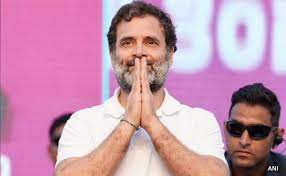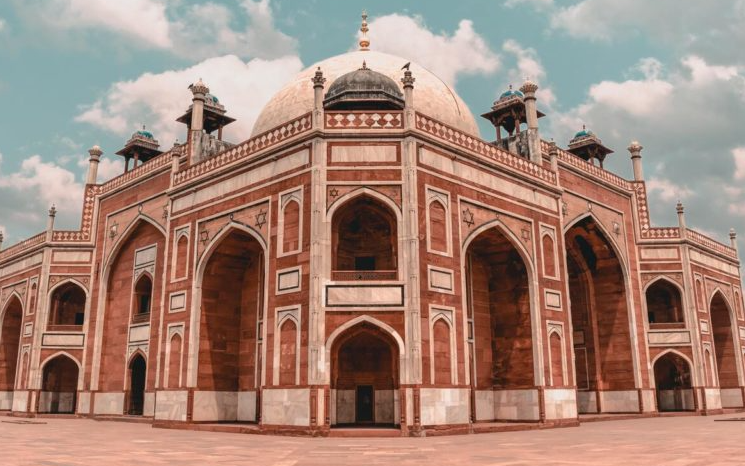Introduction
Rahul Gandhi, the former President of the Indian National Congress (INC), has been embroiled in a defamation case since 2017. The case was filed by a member of the Bharatiya Janata Party (BJP) for allegedly linking the party to the murder of journalist Gauri Lankesh. Rahul Gandhi’s legal team has filed a request for the case to be heard on May 2, 2023, after several delays. Here are 10 key points to understand the case.
Rahul Gandhi’s Request In Defamation Case To Be Heard On May 2: 10 Points
- Rahul Gandhi’s legal team had requested an early hearing of the case in 2019, but it was repeatedly postponed due to various reasons.
- The case was filed by BJP member, Prahlad Joshi, who accused Rahul Gandhi of defaming the party by linking them to the murder of journalist Gauri Lankesh during a public address in 2017.
- The defamation case has been ongoing since 2017, and Rahul Gandhi has made several appearances in court.
- In 2021, the Supreme Court of India upheld the case against Rahul Gandhi and dismissed his plea to close the case.
- Rahul Gandhi’s legal team has argued that the case is politically motivated and that the allegations are baseless.
- The hearing on May 2, 2023, will determine whether or not Rahul Gandhi will be summoned to court to face trial.
- The case has garnered significant media attention and has become a high-profile legal battle.
- The outcome of the case could have implications for Rahul Gandhi’s political career, as well as the BJP’s reputation.
- Several politicians and public figures have spoken out in support of Rahul Gandhi, claiming that the case is an attempt to silence political dissent.
- The case has reignited debates about freedom of speech and the role of defamation laws in Indian politics.
Background on the Case
The defamation case against Rahul Gandhi dates back to 2017 when he made a public address in which he accused the BJP of being involved in the murder of journalist Gauri Lankesh. Lankesh was known for her criticism of right-wing politics in India and was shot dead outside her home in Bangalore in 2017.
Prahlad Joshi, a BJP member, filed a case against Rahul Gandhi, accusing him of defaming the party by linking them to the murder. Rahul Gandhi’s legal team has argued that the case is politically motivated and that the allegations are baseless.
Impact on Rahul Gandhi’s Political Career
The outcome of the defamation case could have significant implications for Rahul Gandhi’s political career. If he is found guilty, it could damage his reputation and credibility as a political leader. However, if he is acquitted, it could strengthen his position and increase his popularity among his supporters.
The Role of Defamation Laws in Indian Politics
The defamation case against Rahul Gandhi has reignited debates about the role of defamation laws in Indian politics. Critics argue that defamation laws are often used as a tool to silence political dissent and stifle freedom of speech.
Conclusion
Rahul Gandhi’s request for an early hearing of the defamation case against him will finally be heard on May 2, 2023. The case has been ongoing since 2017 and has become a high-profile legal battle, reigniting debates about freedom of speech and the role of defamation laws in Indian politics. The outcome of the case could have significant implications for Rahul Gandhi’s political career and the BJP’s reputation. However, his legal team has argued that the case is politically motivated and that the allegations are baseless. It remains to be seen how the case will unfold and what impact it will have on Indian politics.
============================================
FAQs
Q. What is the defamation case against Rahul Gandhi? A. The defamation case was filed by a BJP member, Prahlad Joshi, who accused Rahul Gandhi of defaming the party by linking them to the murder of journalist Gauri Lankesh during a public address in 2017.
Q. When is the hearing for the case scheduled? A. The hearing is scheduled for May 2, 2023.
Q. What is the significance of the defamation case against Rahul Gandhi? A. The case has become a high-profile legal battle and has garnered significant media attention. The outcome of the case could have implications for Rahul Gandhi’s political career and the BJP’s reputation.
Q. Why has Rahul Gandhi’s legal team argued that the case is politically motivated? A. Rahul Gandhi’s legal team has argued that the case is politically motivated because it was filed by a member of the BJP and that the allegations are baseless.
Q. What are the potential implications of the case on freedom of speech and defamation laws in India? A. The case has reignited debates about freedom of speech and the role of defamation laws in Indian politics. Critics argue that defamation laws are often used as a tool to silence political dissent and stifle freedom of speech.
Q. What has been the response of politicians and public figures to the case? A. Several politicians and public figures have spoken out in support of Rahul Gandhi, claiming that the case is an attempt to silence political dissent.
Q. How long has the defamation case been ongoing? A. The case has been ongoing since 2017 and has been repeatedly postponed due to various reasons.
READ MORE ABOUT: Rahul Gandhi Goes To Gujarat High Court After No Relief In Defamation Case










